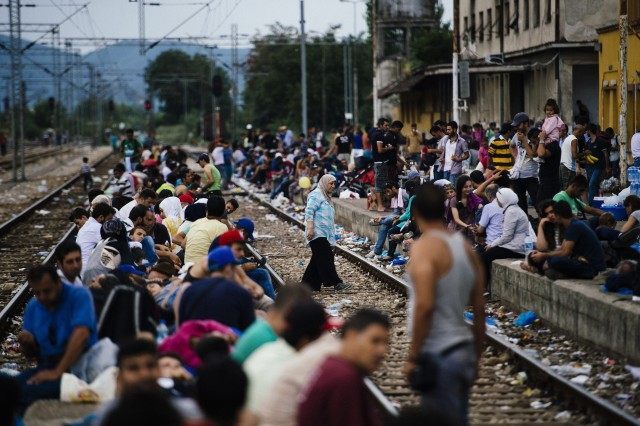A remarkable 86 per cent of citizens think Germany is a “country of immigrants”, and a clear majority want more refugees to come, according to a new social attitudes survey.
The so-called political barometer, commissioned by Der Tagespiegel, reveals the scale of popular support for Angela Merkel’s government policy of opening the borders of Germany to all. The nation is already the largest importer of human beings in Europe, and despite overwhelmed public services and rising violence around immigrant communities many Germans want more.
The survey is well timed, having come just days after the federal government made the shock announcement they were revising their immigrant estimates for 2015, as significantly more people flooded into the country than expected. That 60 per cent of Germans thought the country could take more asylum seekers as the official estimate for the year rose from 450,000 to 800,000 shows the strength of conviction.
The results may come as a surprise to some though, as opposition and support for the mass immigration agenda appears to be divided less by social class or education, but by locality. East German states like Saxony and cities like Berlin, Leipzig and Dresden are emerging as the least open to immigration and this political barometer bears out these perceptions.
The research found those in East Germany were most likely to oppose the idea of taking more asylum seekers, with roughly half saying there were already too many. Easterners were also more likely to think that Germany didn’t need to import more humans to ensure the nation remained viable.
Germans are not merely satisfied with themselves taking more on, either – there is a clear desire within the country to ensure the rest of Europe does as well. Interior minister Thomas de Maiziere said this week that Britain and other European countries had to take more foreigners and “become more aware of their responsibilities”.
In any case, the immigration agenda does seem to be working for its creators in Berlin. Like many Western nations, the German birthrate has been in free-fall for decades. This has been in part because of the sexual revolution of the mid late 20th century and the easy availability of contraception and abortions, as well as changing lifestyles forcing women out to work.
For the past decade, the German birthrate has actually been lower than the mortality rate – meaning that without migrants the German population would have been falling, threatening its productivity and ability to compete globally. Yet the enormous scale of human importation has bucked this trend, artificially inflating German population figures – but now it is leading to organic growth.
As the newcomers outbreed their native neighbours, the German birthrate is growing for the first time in years, and the country is celebrating the highest number of children born in a decade, reports TheLocal.de.

COMMENTS
Please let us know if you're having issues with commenting.